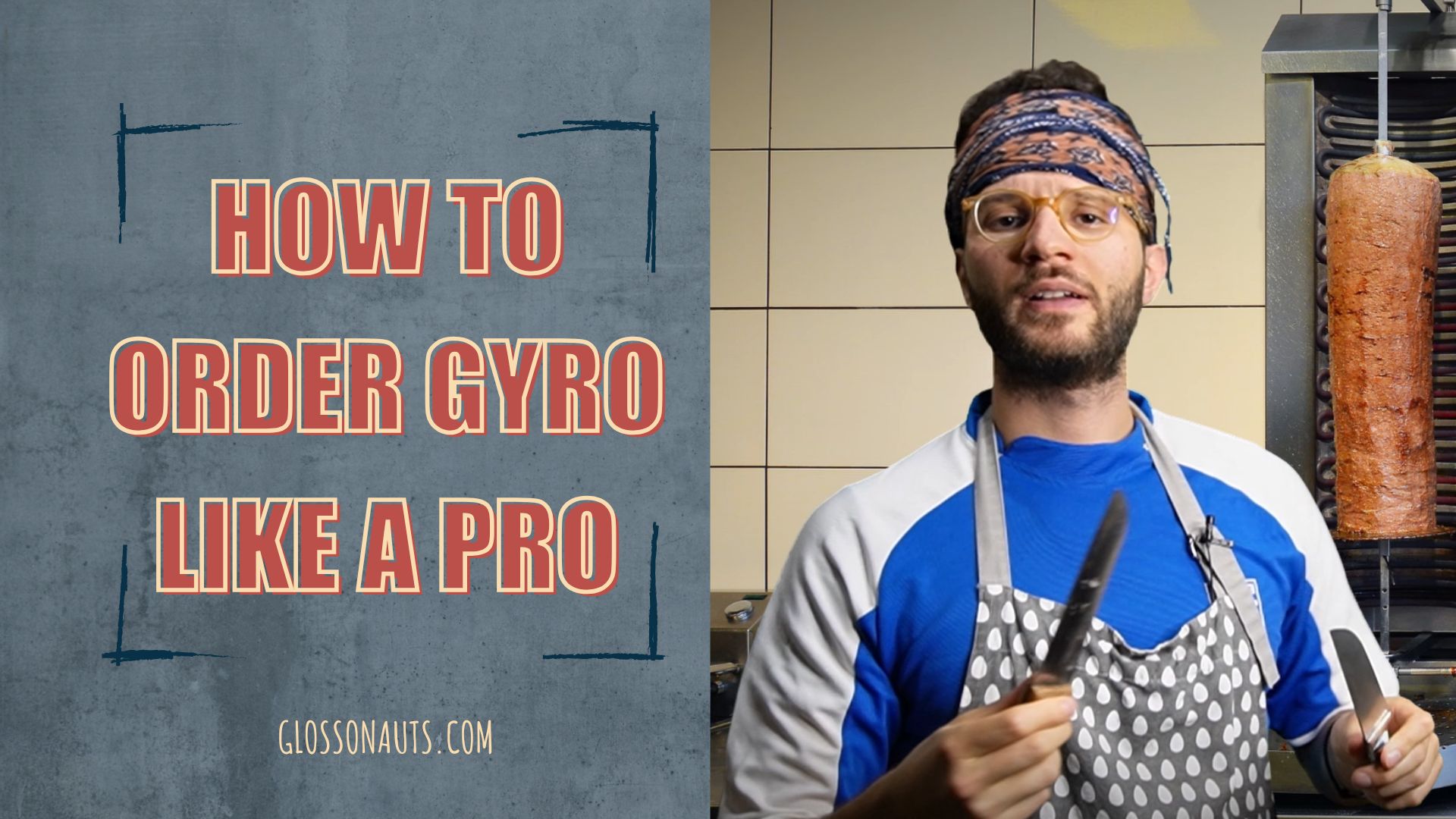
Gyros (pronounced YEE-ros) or gyro is a popular Greek dish made of meat cooked on a vertical rotisserie. The meat is stacked on a large vertical spit and slowly rotates in front of a heat source. As it cooks, the outer layer becomes crispy and is shaved off in thin slices and served wrapped in pita bread along with tzatziki sauce and toppings like fried potatoes, sliced tomato, and onion.
But what is tzatziki sauce you’d ask… Tzatziki is a yogurt and cucumber dip that’s made of strained yogurt, shredded cucumber, olive oil, garlic, lemon juice, salt, and herbs. Authentic Greek tzatziki is most often made with sheep or goat yogurt.

In Greece, gyros is usually made with pork or chicken meat.
Let’s dive into history for a moment…
The gyro as we know it today arrived in Greece around the 1920s, brought by Greek and Armenian refugees fleeing from Asia Minor (present-day Turkey) after the Greco-Turkish War. These refugees settled in Greece and established businesses, including small shops selling gyros.
After World War II, gyros began to spread beyond Greece, following the patterns of Greek immigration to other parts of Europe, the United States, and Australia.
It gained significant popularity in the United States in the late 1960s and 1970s, with Greek immigrants opening gyro restaurants in cities like Chicago and New York. It became a popular fast food option.

So, would you like to get a delicious meal and connect with the local culture at the same time? With a few simple phrases, you can have just that!
Here are some basic phrases to boost your confidence and get you started:
- “Éna gyro, parakaló” (ένα γύρο, παρακαλώ) – “A gyro, please.”
- “Chirino” (χοιρινό) – “Pork”
- “Kotópoulo” (κοτόπουλο) – “Chicken”
- “Ap ‘óla” (απ’ όλα) – “With everything”
- “Chorís” (χωρίς) – “Without”
- “Tzatziki” (τζατζίκι) – “Tzatziki sauce”
- “Patates” (πατάτες) – “Potatoes”
- “Ntomata” (ντομάτα) – “Tomato”
- “Kremmidi” (κρεμμύδι) – “Onion”
Now, let’s make some complete sentences, so you won’t have to point at what you want.
- “Éna gyro chirino/kotópoulo, ap ‘óla, parakaló” (ένα γύρο χοιρινό/κοτόπουλο, απ’ όλα, παρακαλώ) – “A pork/chicken gyro with everything, please.”
- “Éna gyro chirino/kotópoulo, chorís tomato/kremmidi, parakaló” (ένα γύρο χοιρινό/κοτόπουλο, χωρίς ντομάτα/κρεμμύδι, παρακαλώ) – “A pork/chicken gyro without tomato/onion, please.”
Fun Fact: The name “gyro” comes from the Greek word “γύρος” (gyros), meaning “turn,” referring to the rotating motion of the meat on the spit.
So, go ahead! Give it a try and don’t forget to say “efcharisto” – (ευχαριστώ) “thank you”
See you in the next one!






0 Comments